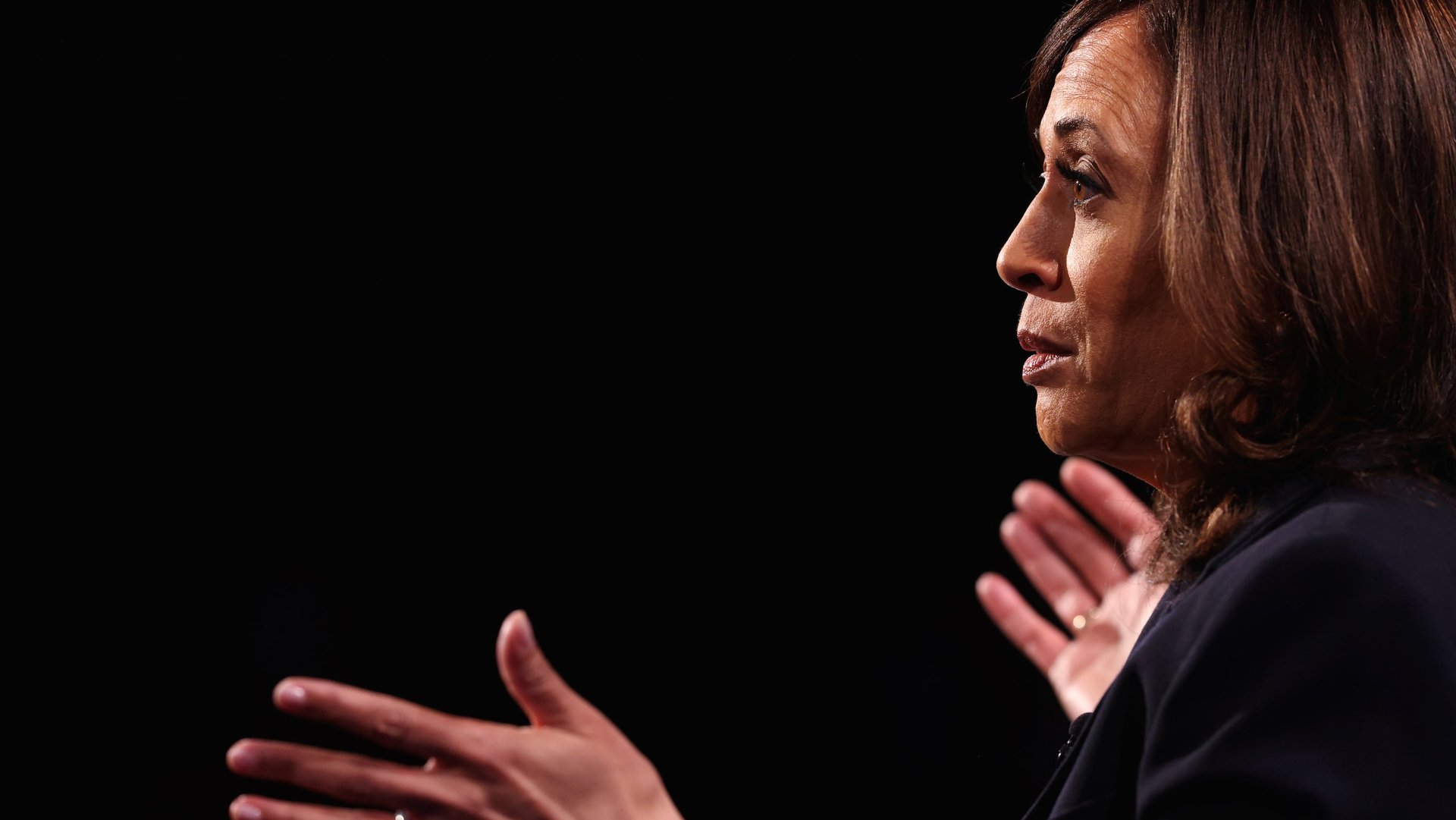Mortality is the third rail neither Harris nor Pence can touch
Death eventually comes for us all. But you wouldn’t know it to listen to the way US senator Kamala Harris and vice president Mike Pence dodged the topic of their running mates’ potential demise during Wednesday night’s debate.


Death eventually comes for us all. But you wouldn’t know it to listen to the way US senator Kamala Harris and vice president Mike Pence dodged the topic of their running mates’ potential demise during Wednesday night’s debate.
Moderator Susan Page introduced the specter of mortality early on in the debate—a fair line of questioning, given that part of the vice president’s role is to step into the role of president if their boss dies or becomes incapacitated. And as Page noted, there are several reasons why this aspect of the job is particularly relevant this election cycle:
One of you will make history on January 20th. You will be the vice president to the oldest president the United States has ever had. Donald Trump will be 74 years old on inauguration day. Joe Biden will be 78 years old. That already has raised concerns among some voters, concerns that have been sharpened by president Trump’s hospitalization in recent days.
In light of the presidential candidates’ age and Trump’s Covid-19 diagnosis, Page asked each vice-presidential candidate whether they had talked with their running mate about “safeguards or procedures when it comes to the issue of presidential disability,” adding, “if not, do you think you should?”
Neither Pence nor Harris answered the question in the slightest. Pence used his time to double back to an earlier question about the prospect of a Covid-19 vaccine, while Harris offered up a mini-biography of her family history and career. (If candidates don’t have to answer the questions they are asked, perhaps we should stop calling these events “debates” and start calling them “time allotments for disconnected speeches about whatever you want.”) In a follow-up question, Page asked whether voters deserve to have access to detailed health information about Biden and Trump; Harris and Pence once again responded evasively.
The vice president and senator’s mutual silence on the subject of their bosses’ health vulnerabilities is a reminder of just how real those risk factors are—and that neither can acknowledge it without opening up their candidate to further attacks from their opponents. (The Trump campaign has repeatedly taken aim at Biden’s age, despite the fact that Trump is only a few years younger.)
To be fair, there’s an element of ageism to the public conversation about Trump and Biden’s age. Doctors who specialize in aging emphasize that people can remain in excellent mental and physical shape well past their 70s. “I don’t really think of age as a discriminating factor in terms of when to choose someone that’s going to be in a leadership position, even if it’s in the most powerful position in the land,” Richard Isaacson, a trustee at the McKnight Brain Research Foundation, told CNN. “What I would say is you have to pick the best person for the job.”
The best person for the job may not need to be young, but they do need to be comfortable talking about pragmatic realities with the American people, especially right now. Life expectancy at birth for white men in the US is 76.4 years. No matter who wins the election this November, there’s a greater chance than usual that the vice president will be called upon to advance to the nation’s highest office. Denying that reality does a disservice to voters who are already living in a period of great uncertainty.